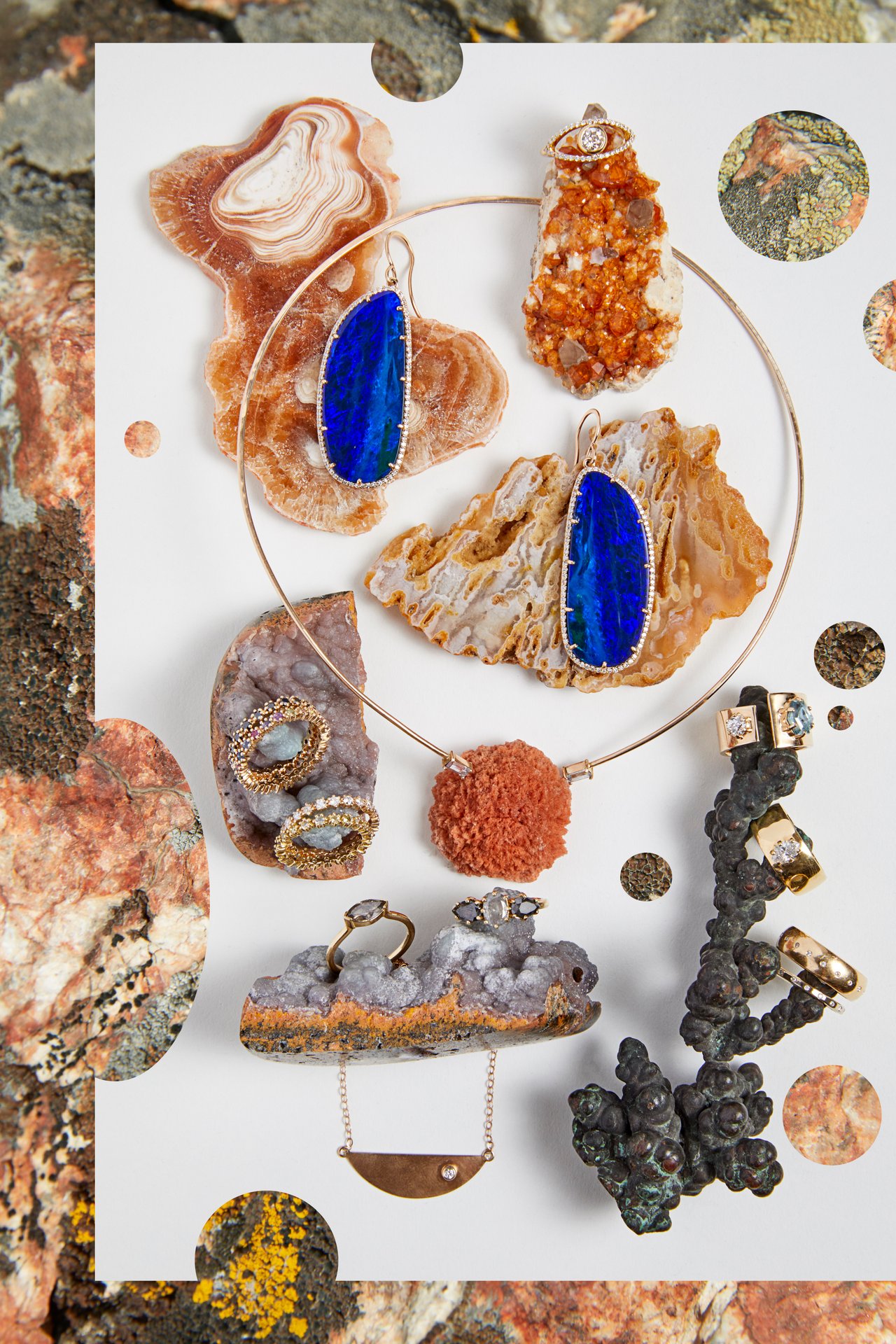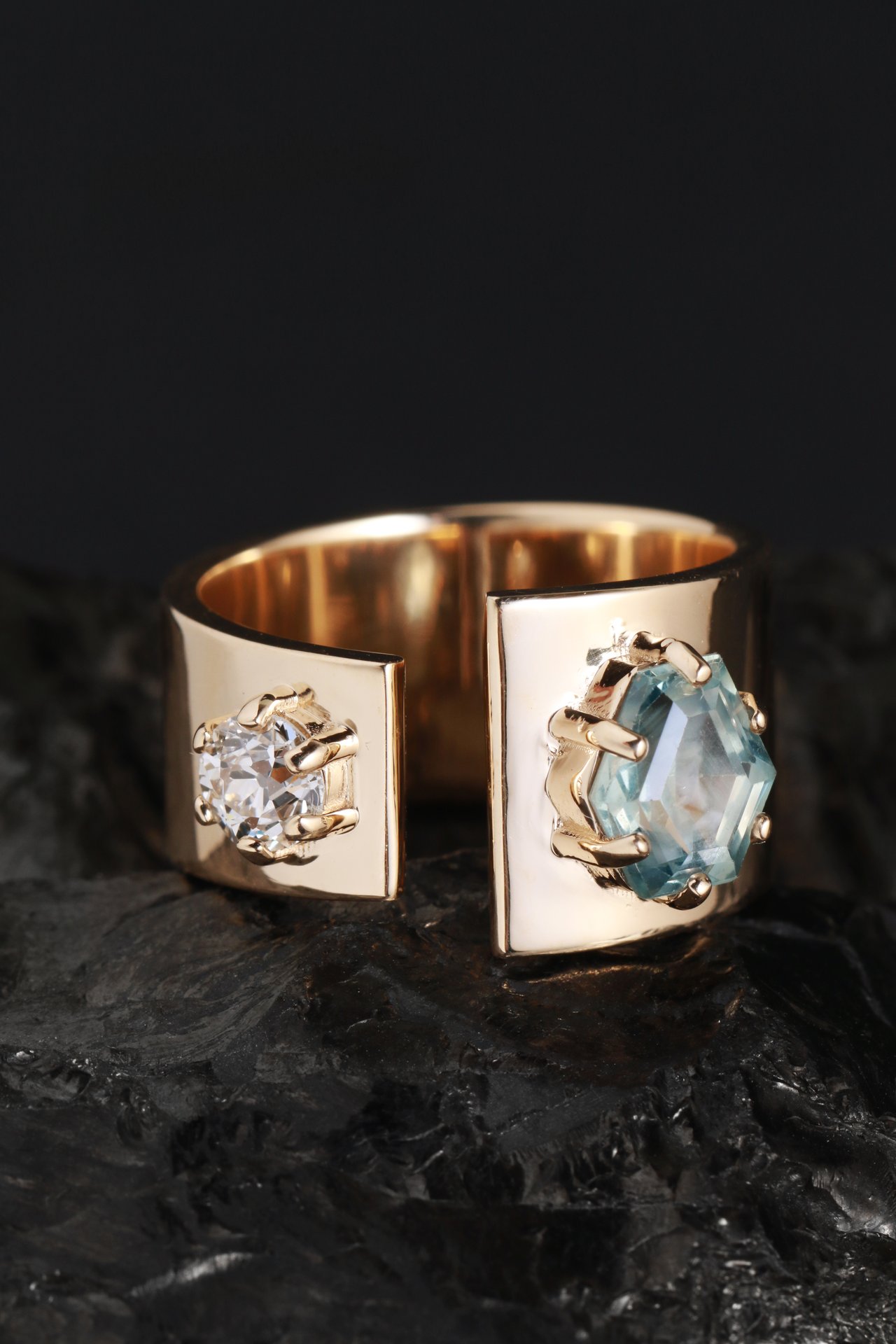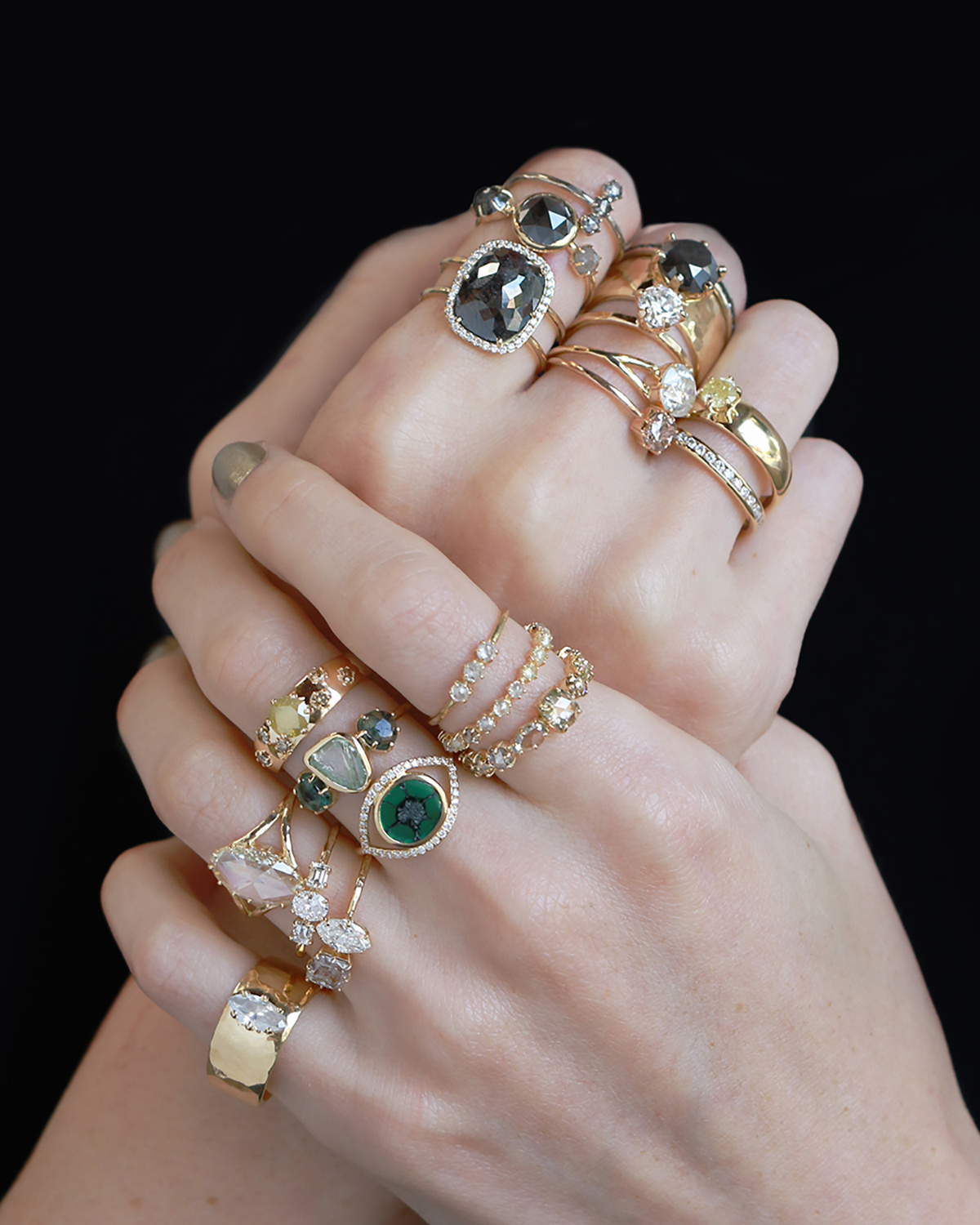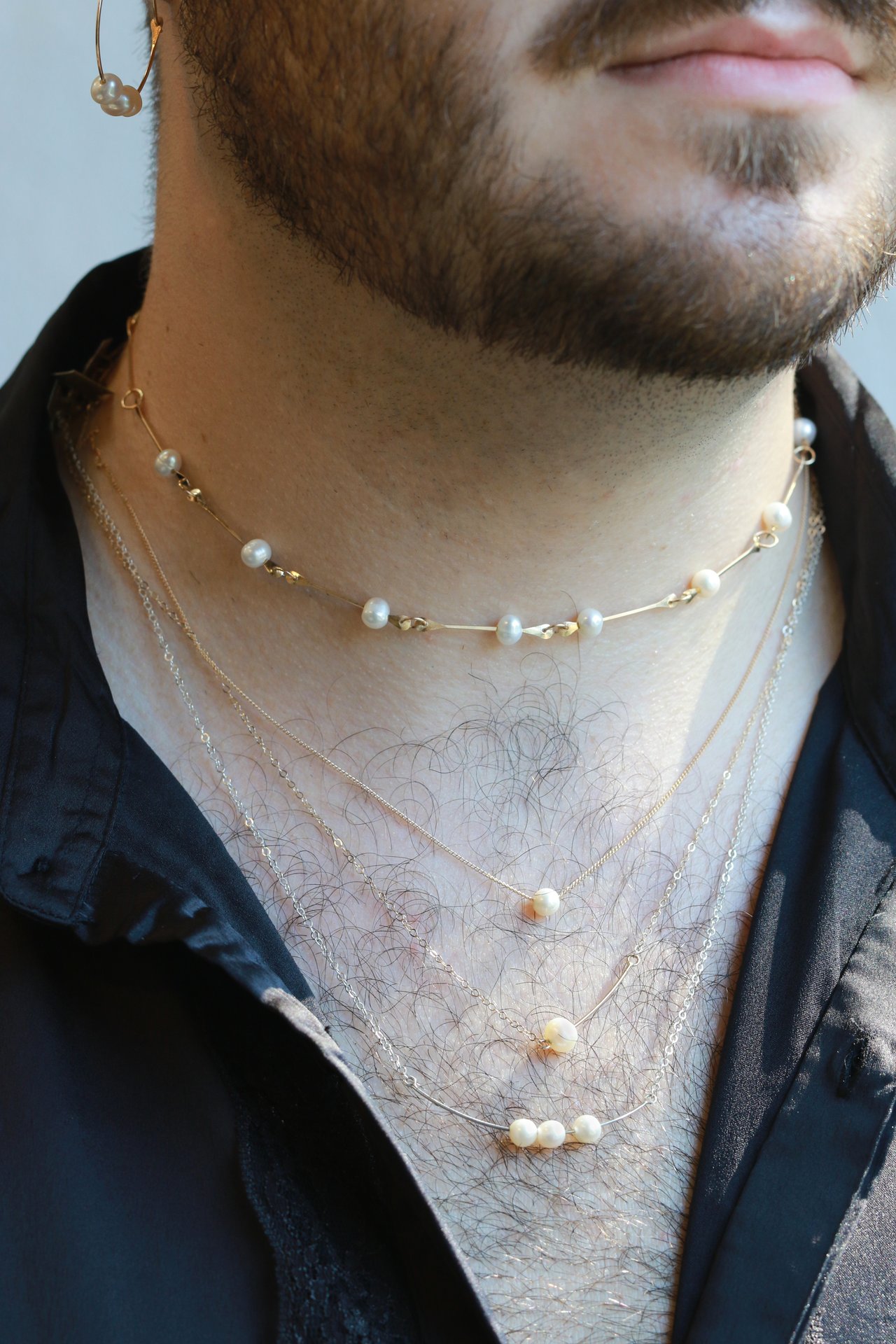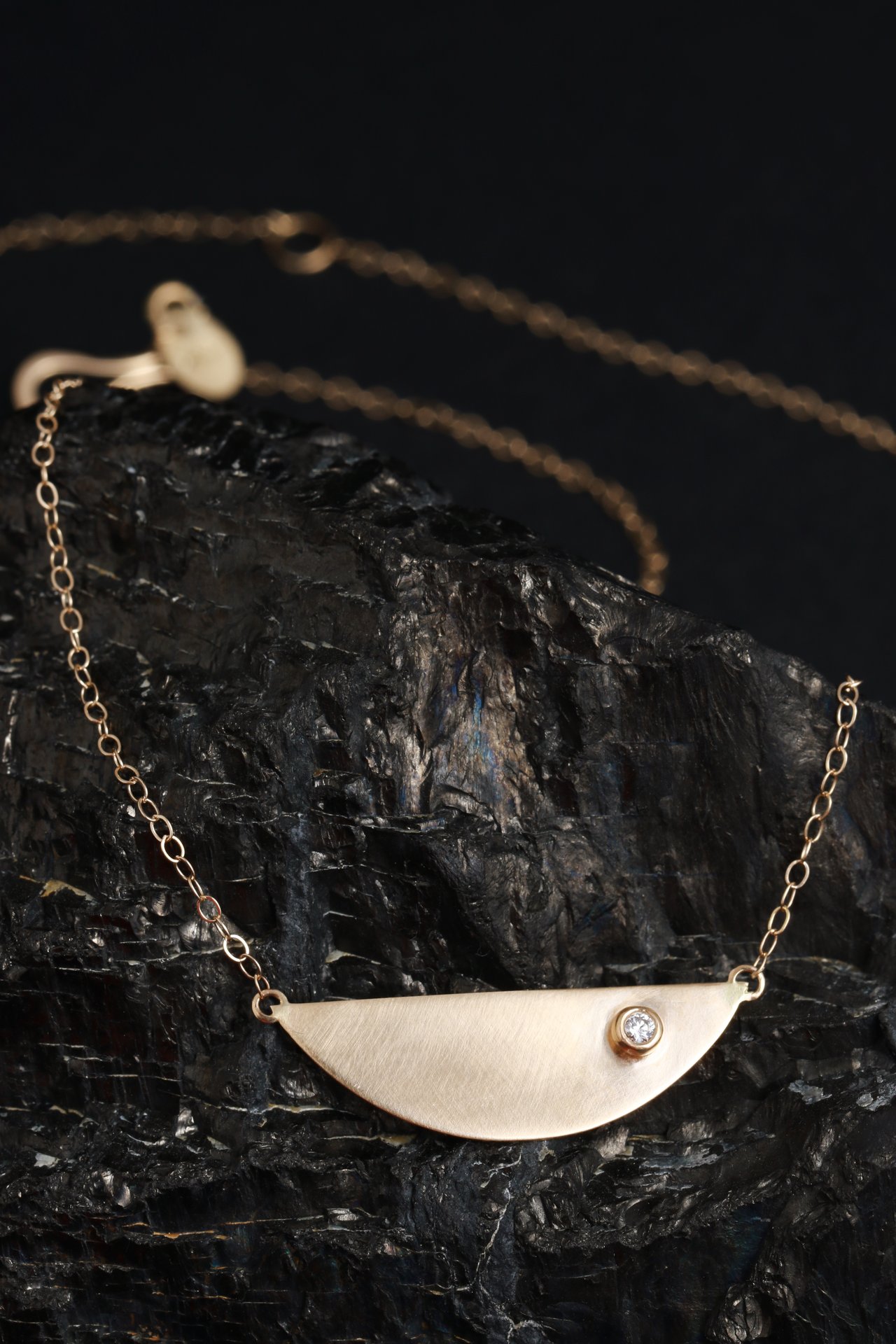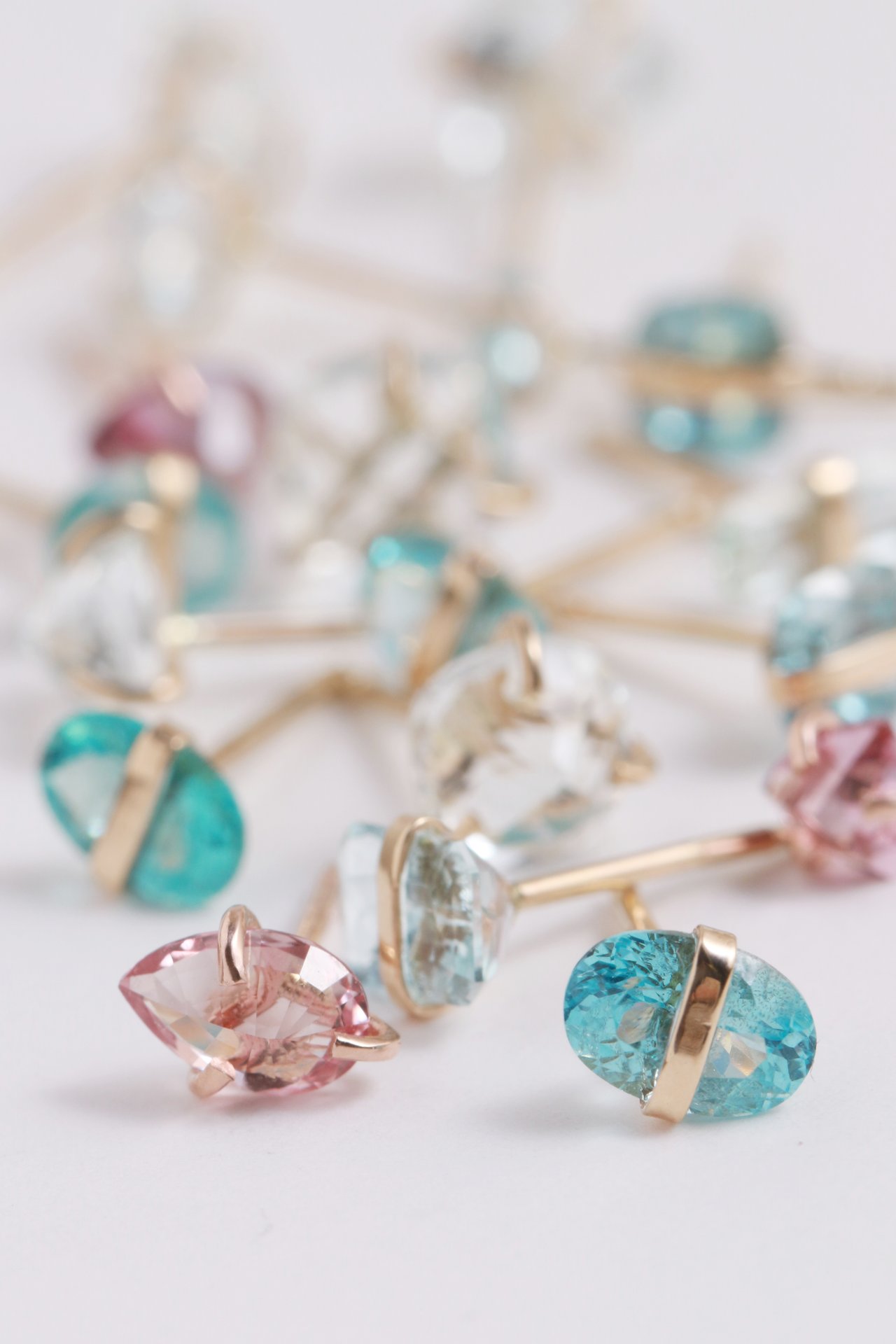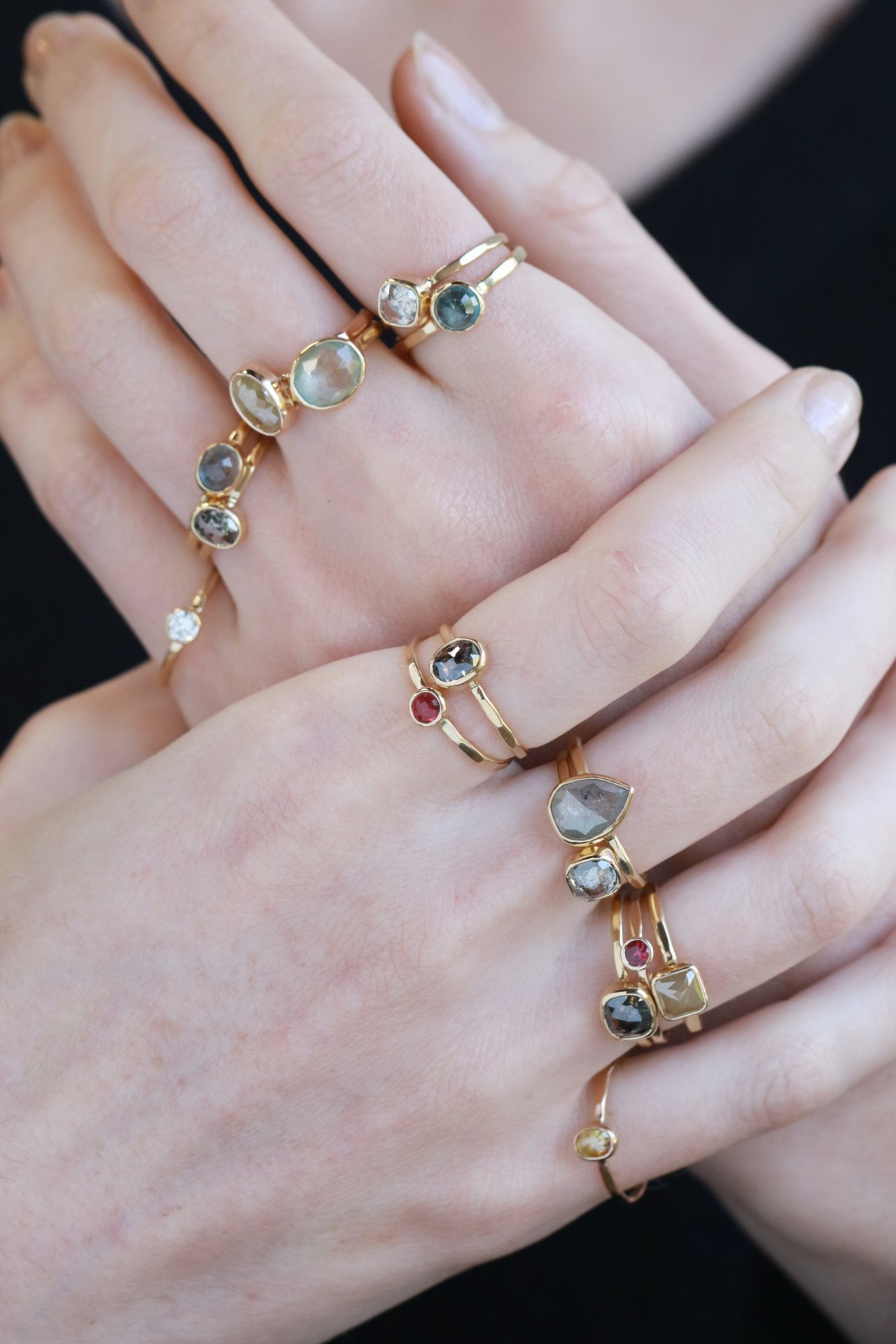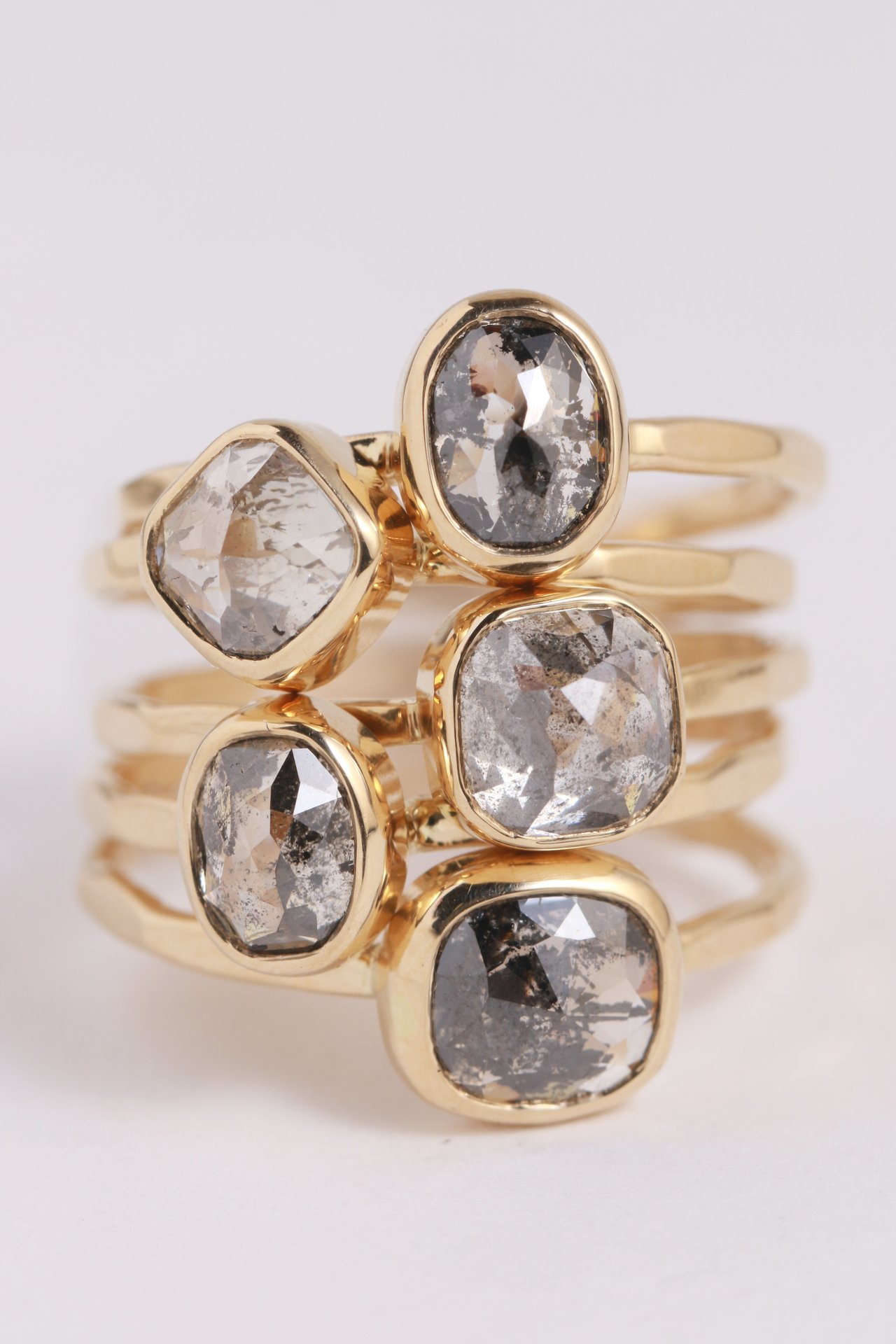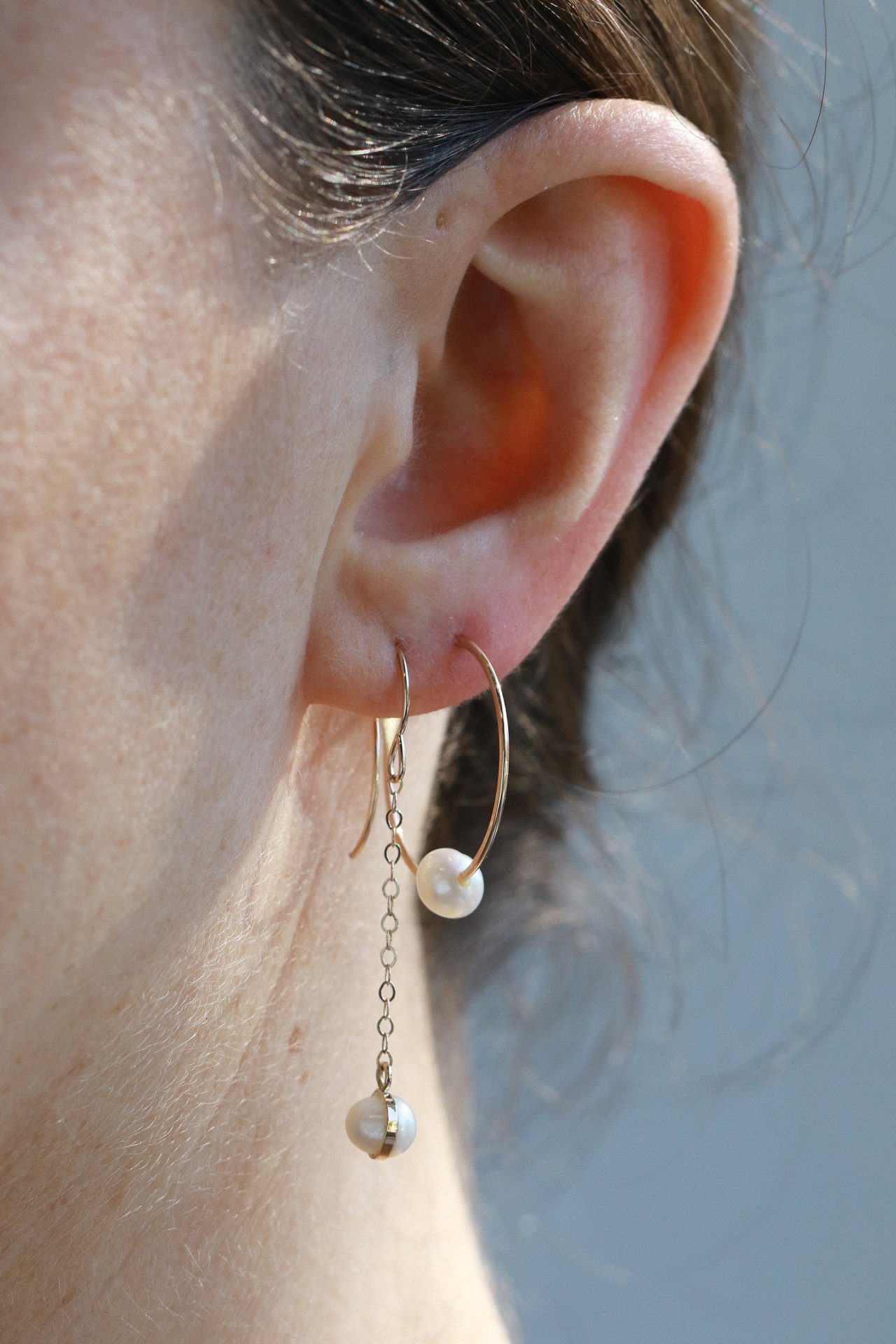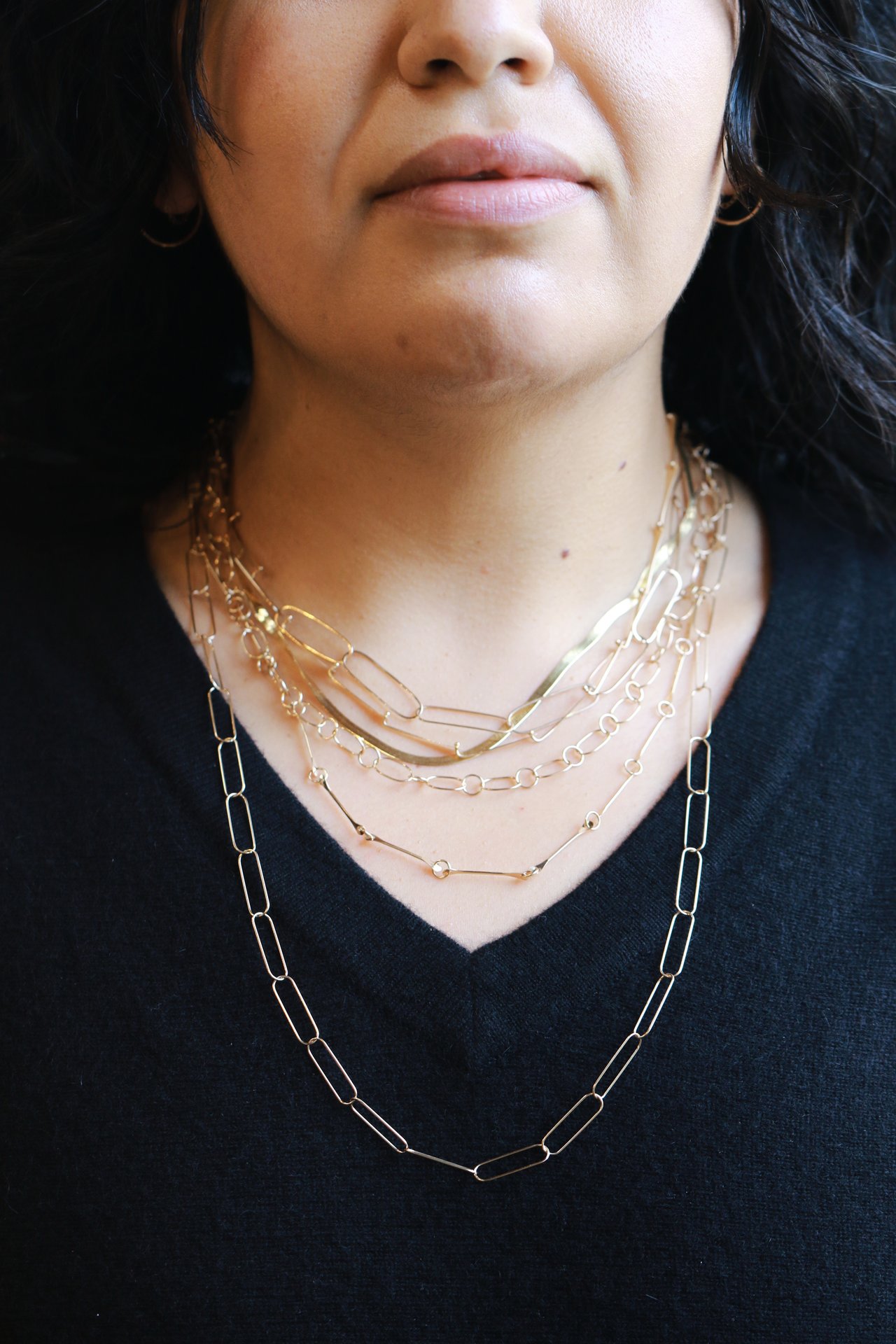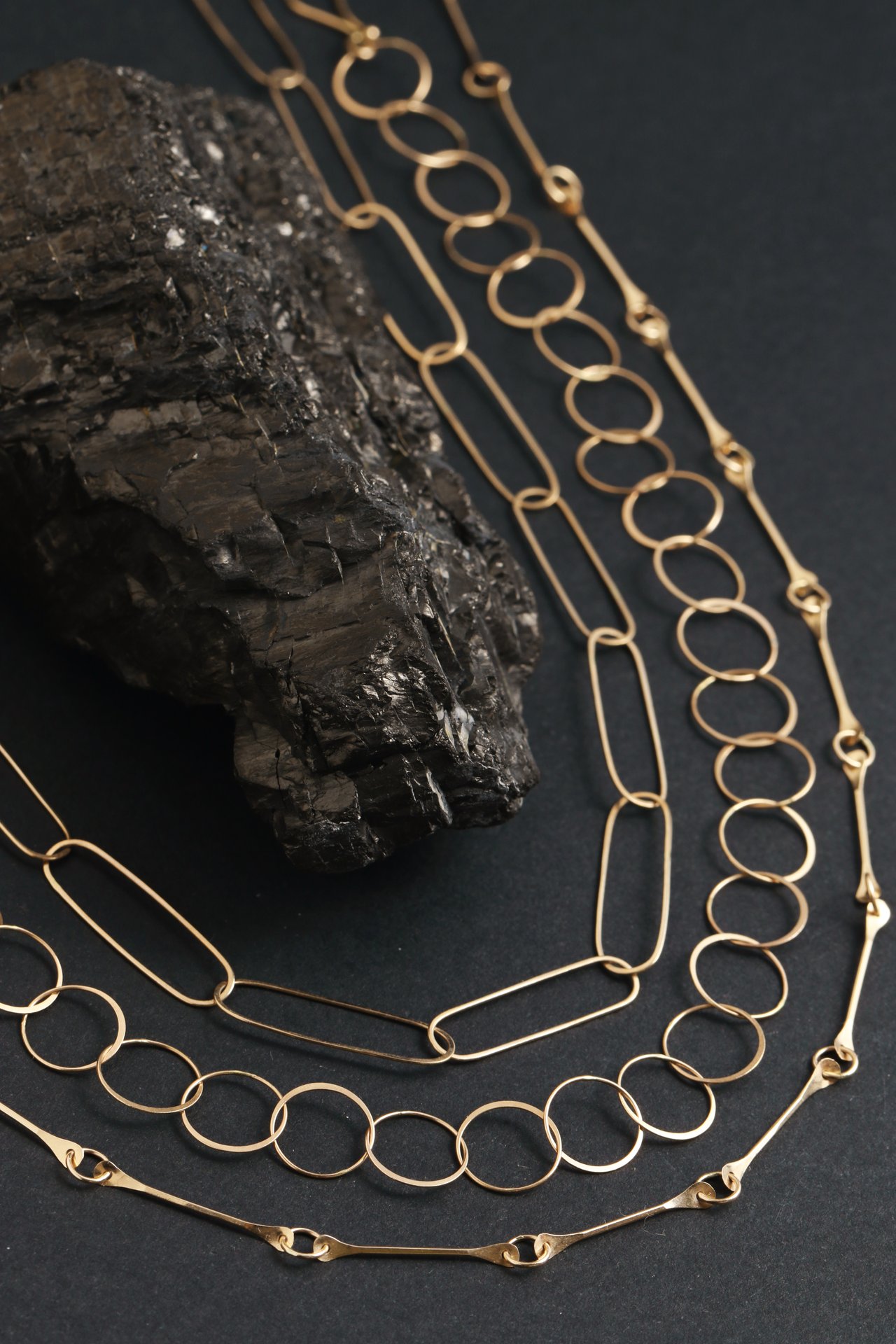Melissa Joy Manning Celebrates 25 Years in Business
April 11, 2022
Jackie Shihadeh


This year, Melissa Joy Manning marks 25 years of her eponymous brand. As a pioneer in sustainable jewelry, Manning founded her company on principles of ethical production. She has since established herself as a leading voice in the field. On April 21, Manning will be part of the CFDA’s ‘The Gold Standard’ virtual panel, joining experts in the industry in providing an inside view of the world of ethical sourcing and the production of sustainable jewelry. Register to join here.
We caught up with Manning to hear more about her journey and brand.
You’ve put ethical production and sustainability first in your collections since the start. Can you tell us more about what inspired you to build your brand around these pillars?
I grew up in the California Bay Area, and started my company there straight out of college. As an artist inspired by my community and the environment, it was incredibly disturbing to learn that what I was making was contributing to the degradation of both. In scaling my business, I started incorporating changes to our processes and materials that made me feel better about what I was designing. As a 26-year old, I never thought I was starting a “sustainable business.” I don’t even think the term really even existed back then! I was just doing what felt right to me.
When I realized I could effect more change in a collective than as an individual, I began sharing my learnings. Shortly after, I moved to New York and joined the CFDA. At my first meeting, I stood up and asked Steven [Kolb, CFDA CEO] and Diane [von Furstenberg, former CFDA Chairwoman] what our industry’s plans for sustainability were. Unfortunately, I learned we had none. However, with the help of Lisa Smilor, Scott Mackinlay Hahn and I launched and co-chaired the CFDA Sustainability Committee the next year. Now, sustainability is a key pillar of the organization. I’m happy that the conversation has moved forward so rapidly and am continually excited to learn more about what we can all do to lead change in our industry.
You’ve spoken about the importance of the humanitarian and people piece of jewelry production. How do you incorporate this into your work?
I don’t believe that we can be responsible without looking at who makes our jewelry. It’s noble to protect the planet but if we aren’t bringing other people up with our practices and providing workers with at least minimum working wages and fair labor conditions, we aren’t doing enough. Here at MJM, we make our jewelry in-house and pay above living working wages, offer full benefits, retirement and paid time off packages. Our studio is our community and we endeavor to support our team in any way we can.
What is the MJM Gold Standard?
The MJM Gold Standard is our operating ethos. It includes the four overarching pillars that drive our decisions and govern our corporate responsibility: Creating heirloom quality jewelry that lasts; Making our pieces by hand, not machine; Protecting our planet, and Giving back to our communities. Within each of these tenets are the policies that dictate both our environmental and social sustainability.
What uniform ethical certifications do you hope the jewelry industry will adopt, to ensure ethics-driven design?
A governing body that managed ALL stone transparency would be ideal. Knowing how something was mined, who mined it, who and how it was cut would be a game changer. It’s great that we can often find that information for “precious” gems but we all know that the industry uses a lot more than diamonds, rubies, or emeralds. I’d also like to see the industry move towards valuing workers rights as much as environmental issues. It’s great that a gold mine is mercury free, but what about the people who work there? How are they treated? What labor standards exist in those mines?
You’re speaking in the upcoming CFDA Conversation around sustainable and ethical jewelry production and design on April 21st. What critical issues facing people and planet do you think the jewelry industry needs to be discussing now?
I think the question is, what shouldn’t we be discussing? We’re witnessing the fast destruction of our environment and cultures. The jewelry industry needs to be addressing mining from both a social and environmental lens, including wage and labor standards but also harder topics like money laundering and terrorism funding. Jewelry isn’t a pretty business despite the beauty we make. We need to address all aspects of what we do – literally, from the ground up.
How do you practice supply chain transparency? Why do you feel this is important?
I ask a lot of questions. It’s not yet possible for us to know all the answers but when we hear the right ones, it makes it easy for us to support the transparent suppliers. If I can’t trust my suppliers, I can’t make jewelry that adheres to our standards. It isn’t enough that we do what we do in-house. We need to bring in the right supplies when we can find them, ensuring that our products are as responsible as possible.
What organizations or initiatives are inspiring you lately?
I’ve been really inspired by Amy [Denet Deal] at 4Kinship. I think her adherence to social and responsible issues are unmatched and she uses her platform to lift up and support her community. Amy is a stellar example of creating a company that embraces positivity and progressive change in the fashion industry.
